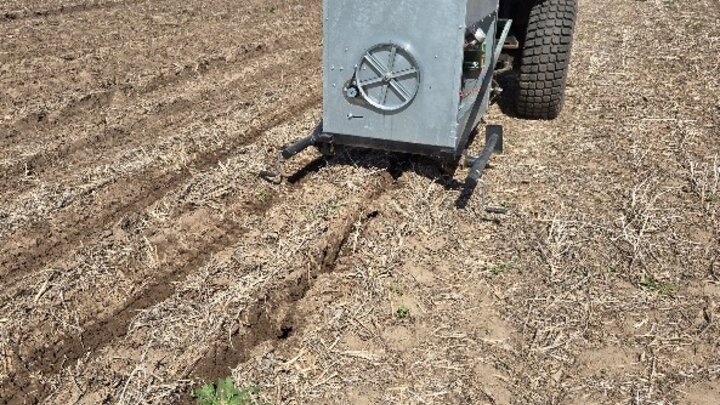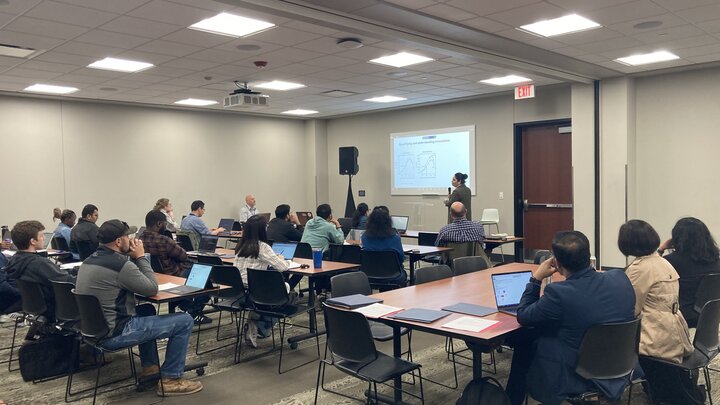Editor’s Note: This article is adapted from a UNMC website tracking the AltEn pollution.
A team of multi-disciplinary scientists and public health professionals is investigating the contamination of water, soil, and air caused by a closed ethanol plant that the State of Nebraska is suing.
Toxic piles of ethanol byproduct — called wet cake — are rotting on the grounds of the plant near Mead, Nebraska, and a stench permeates the area. Snow and rain send chemical-laden runoff into waterways, contaminating groundwater and drinking water. In dry weather, the wind kicks up toxic dust that has been linked to public health issues in local residents.
The AltEn LLC plant used seed corn coated with fungicides and insecticides — including those known as neonicotinoids or “neonics” — to produce ethanol, becoming one of the largest stockpilers of surplus seed corn in the United States. The wet cake was sold to farmers as fertilizer until 2019 when it was found to be contaminated with levels of toxins in excess of 1,000 times the legal threshold.
After being prohibited by the State from continuing to sell their wet cake, the company piled 84 tons of toxic wet cake and excess seed corn outdoors, rather than disposing of it.
Public health experts, led by the UNMC College of Public Health, have launched an investigation to determine the extent of the pollution by testing animals and taking samples of water, soil and air. This work will track the path of chemicals from the AltEn plant into drinking water and its impact on the lives of Nebraskans. Adverse effects on human health will be assessed and monitored as the research continues, and such data will be reported on these pages.
In addition to UNMC researchers, several UNL faculty are participating, including: Dr. Dan Snow, research professor and director of the Water Sciences Lab; Dr. Shannon Bartelt-Hunt, professor and chair of the Department of Civil and Environmental Engineering; Elizabeth VanWormer, assistant professor, School of Natural Resources; and Judy Wu-Smart, Extension and research entomologist, Department of Entomology.
For more information visit unmc.edu/publichealth/departments/environmental/mead/.


